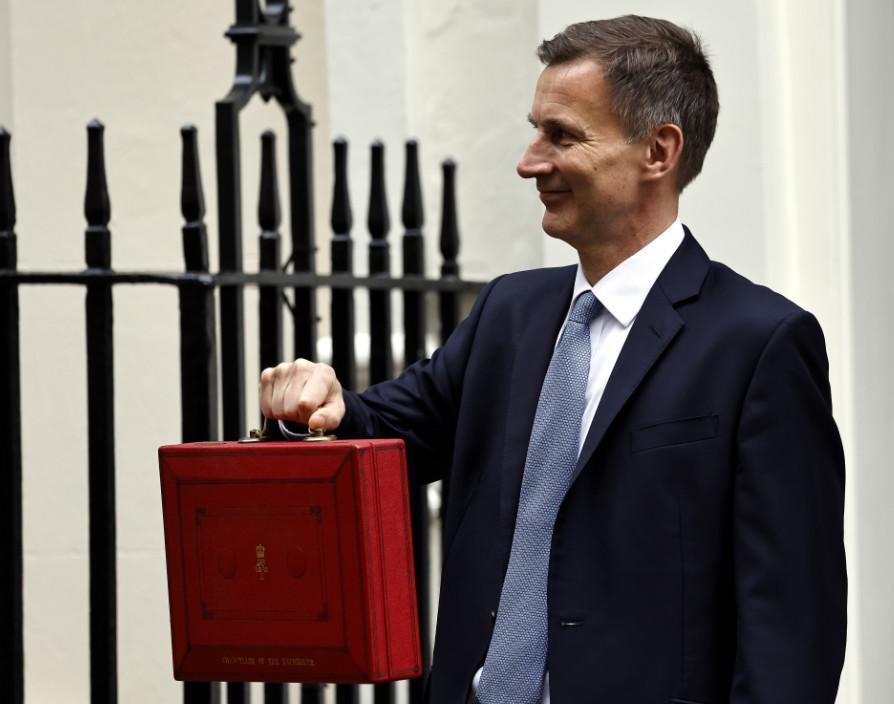High energy bills and the imminent hike in corporation tax are a major concern for SMEs
The technology sector, over-50s looking to retrain and parents of very young children look set to benefit most from Jeremy Hunt’s 2023 Budget.
The chancellor of the exchequer set out his plans on Wednesday, weeks before a substantial rise in UK corporation tax – from 19% to 25% – comes into force.
Announcing his intention to boost growth and expand the workforce, Hunt pledged to dramatically increase state-funded childcare to look after babies as young as nine months.
His new scheme, introduced in stages, will provide up to 30 hours a week of free childcare by September 2025 to working parents of children up to four years old.
At the other end of the age scale, he will introduce ‘returnerships’ – a form of apprenticeship or retraining – for fiftysomethings who want to get back into the workforce.
At the same time, those who are economically inactive due to a long-term sickness or disability will be offered help in finding work.
In addition, the government will create 12 regional ‘investment zones’ incorporating lighter-touch regulations and enhanced tax relief, designed to catalyse “new innovation clusters”.
Enhanced R&D tax credits, worth an extra £27 per £100 spent, will benefit the artificial intelligence and fintech sectors in particular.
Meanwhile, ‘full expensing’ – a measure that will allow firms to write off 100% of capital expenditure against that year’s taxable profits – will replace the previous ‘super-deduction’ tax break.
The forthcoming rise in corporation tax, effective from April, will not affect companies with profits below £50,000. There will be some relief for those with profits between £50,000 and £250,000.
In general, the Budget drew a mixed reaction from the SME community. Martin McTague, national chair of the Federation of Small Businesses, was mostly unimpressed.
“Today’s Budget will leave many feeling short-changed,” he commented. “The distinct lack of new support in core areas proves that small firms are overlooked and undervalued.
“Budgets are about tough choices, and with today’s billions being allocated to big businesses and households, 5.5 million small businesses and the 16 million people who work for them will be wondering why the choice has been made to overlook them.
“We’ve got a Budget that on energy helps households but not small firms. On business taxes, it spends £27 billion extra on big businesses, arguing that small businesses are already catered for. This will leave to a feeling of being left behind instead of being considered equal partners in economic recovery.”
McTague labelled the measures directed at the over-50s “token efforts at best” – and while the childcare plans seemed fine in principle, “this government’s Achilles heel is in delivery and practicalities, so there needs to be more work with providers to make sure it can work”.
Anne Boden, founder and CEO of Starling Bank, was more upbeat, not least about the new investment zones. “London’s success as a fintech hub should enable it to spread the love – the wealth and jobs – throughout the UK,” she said. She expected Greater Manchester and Wales, “both areas with a deep pool of tech talent”, to benefit.
“Allowing companies to write off the full cost of qualifying plant and machinery, including IT equipment, will give businesses a significant incentive to invest and will support additional job creation,” she added.
Boden also applauded the ‘returnerships’ plan, which resembles a scheme that Starling has in place to grow its inclusive team.
Emma Jones, founder of small business support platform Enterprise Nation, welcomed Hunt’s idea of helping mothers and the over-50s to fill job vacancies. “But,” she added, “no amount of tax tinkering can make up for the incremental rise in corporation tax that hits well before £250,000 in profits”. This will effectively slash SME owners’ incomes, “especially when energy costs are still so high”.
Alan Thomas, UK CEO at insurance provider Simply Business, noted that 54% of small firms regard energy costs as the greatest threat to their businesses in 2023. While Hunt’s three-month extension to the Energy Price Guarantee was good news, “SMEs up and down the country will still have very real concerns as to what comes after that”.
At the Association of International Certified Professional Accountants, chief executive Andrew Harding said: “This was a budget for troubled times. I see glimmers of hope for the future, and I am pleased by some of the measures it included. I especially welcome the increases to R&D tax credits in the budget this afternoon. These have the potential to help businesses unlock the productivity improvements we need to see.
“We knew the ‘super-deductor’ was coming to an end, so it is good to have certainty on the capital allowance regime which will replace it, even though it is not as generous.”
Hannah Copeland, HR business partner at WorkNest, an employment law and HR consultancy firm, called free childcare hours for young children “a massive positive for working parents” that will increase mothers’ and fathers’ sense of flexibility.
She added: “With parents having the financial support to return to work sooner, this inevitably means more women in the workplace and less pressure on women, especially in senior roles, who don’t want to have gaps in their careers.”
Mike Randall, CDEO of Simply Asset Finance, said that businesses “will still be in need of a financial lifeline” because of the corporation tax hike.
Increased R&D support for SMEs “will be well received by those looking to grow quickly and innovate their services”, but “for more established, long-running SMEs, this may have limited impact”.
Share via:








































